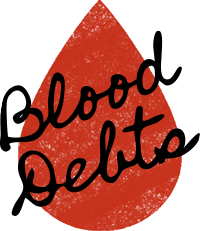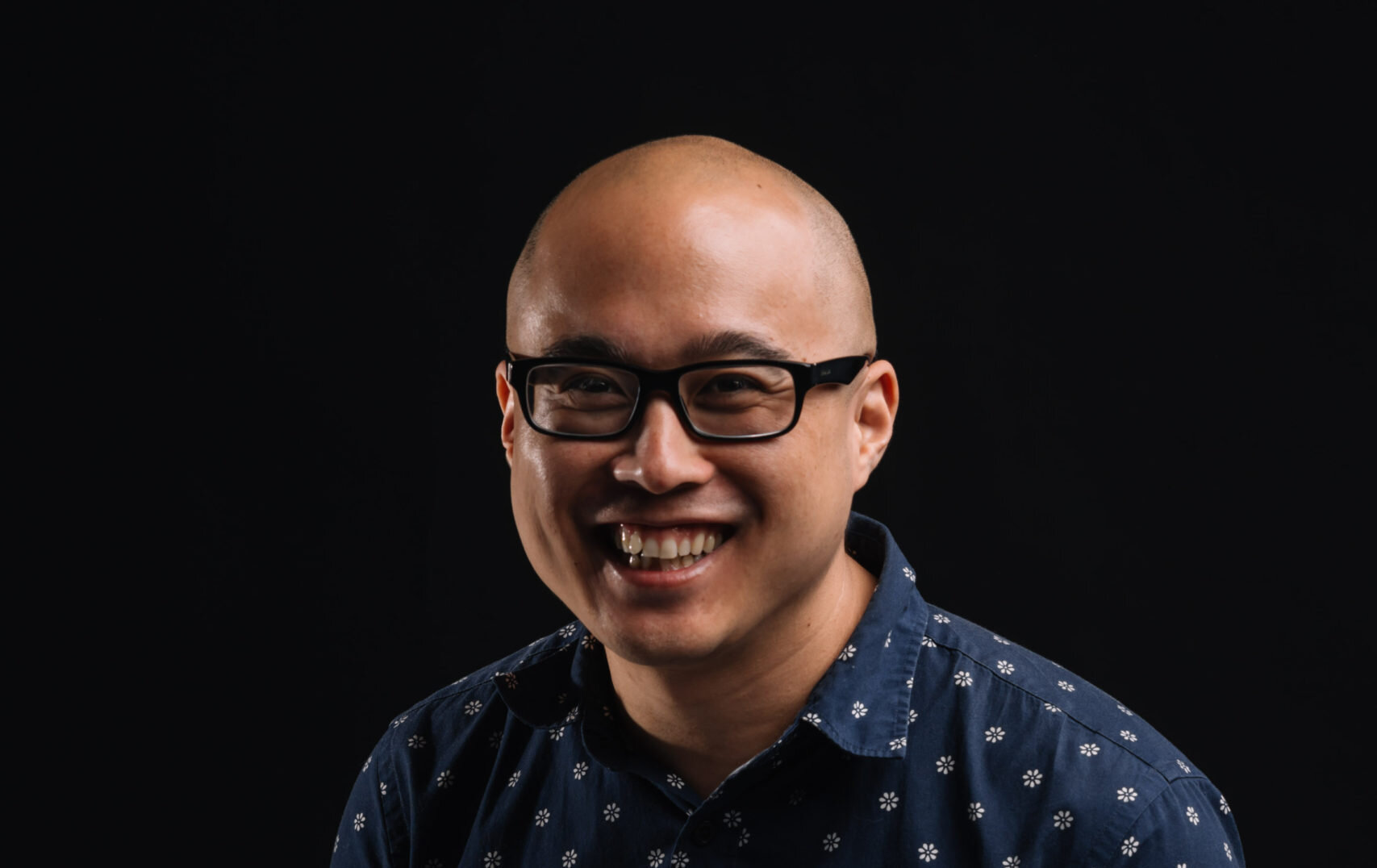Season 1: Episode 4
Risk, Relationship, Filipino American Identity Debt
Transcript
VOX POP BEGINS
Debt is really about, honestly, the love and the care and the selflessness that was provided to me.
Well, it is an obligation, right? You owe somebody something. You know, somebody gave you something.
You owe something back.
When I talk about my relationship with debt, the underlying implication is what is my relationship with the person who I’m indebted to.
VOX POP ENDS
INTRODUCTION BEGINS
In Blood Debts, we tell the stories of choices and sacrifices to pay back what is owed and pay forward something of value.
I’m your host, Leezel Tanglao.
On this podcast, we talk about one of the few through lines in people’s lives - debt.
You’ll hear stories from the Filipino diaspora around how debt has impacted all aspects of life from those in the medical field, public service sector to creative arts.
As a journalist, I’ve spent more than a decade reporting on the financial aspects of debt in diverse communities.
But many carry debts beyond money.
In this episode, we talk to Roland Ros, co-founder of the Philippines top downloaded live stream app Kumu and his entrepreneurial journey, dealing with debt and finding himself along the way.
INTRODUCTION ENDS
ROLAND ROS: My name is Roland Ros. I am an entrepreneur based here in Makati in metro Manila. I'm currently working on a mobile app that's currently focusing on building authentic connections with millennial and Gen Z Filipinos around the world.
For me, you know, one of the things that I've learned very early on when I was in financial debt, it's really not a good feeling. And it really hampers, you know, my focus and ability to execute. And so when I am in debt, whether it's financially or socially or technically, it's definitely weighs on my mind. And it is definitely something that I do have to pay down. It's actually one of my biggest, number one top priorities.
I always take a look at my debt and all the different context and I make sure to get that stuff off my plate because it always haunts me.
Debt is a fundamental, terrible place to be in. And if you don't have the mental capacity or the preparation to deal with it, I think it could be a very debilitating thing on society.
It could be a terrible thing. And so if we don't have the proper, you know, the proper infrastructure in place to help people deal with that, like, you know, one of the things that really worries me.
And I don't want to go too deep into conspiracy theories, but like, why don't we teach children about debt and money matters in the school place? And I noticed that when I hang out with billionaires, the way they talk about money, it's not like the way poor people talk about money, where we're always talking about money, like, you know, oh, how much is this?
And that person's getting paid, blah, blah.
No, they have freakin constitutions.
They have a leadership training program that trains their children into what they call leadership academies to steward wealth into the next generation.
These are the types of classes that aren't available to people of lower means. And I just think that not having that foundation at the educational level has deep, debilitating impacts on society.
LEEZEL TANGLAO: And what happens when Filipino American identity becomes a blood debt?
You know, it goes back to my identity as a Filipino American. And now that I'm here, I really think in the Philippines it goes back to that life changing moment when I studied abroad in the Philippines.
I remember there is this time I was underneath this waterfall and how and we trekked up there for hours.
And when I push up position myself into that waterfall and felt that cold water hit me after hours and hours of just hot, humid, sweaty hiking, you know, with a shirt, it just stuck to your chest and your pants feel uncomfortable because it's so sweaty. Your socks are all gross. And I just cleanse myself underneath that waterfall. And it was kind of like this spiritual experience of the country and the motherland baptizing me within that beautiful environments surrounded by green vines and rocks and all that.
And when I think about blood debts, I think about that moment. I think about that moment where I decided I may be Filipino American, but moving forward, I felt that I the Filipino side of my Filipino American was was really on fire and really, it's funny, that program….You know, I talk about blood debt and it was a life changing study abroad program called Tagalog on Site and that particular program. And why I'm thinking about that particular moment was because for the previous eight weeks, I was struggling with my Filipino American identity because we were confronting what it actually meant when Philippines, an American and that hyphen in that bridge.
What does it mean when those two things collide? So we went to Clark Air Force Base and we saw the toxic waste contamination left behind by the U.S. military and those those babies were impacted by the toxic waste contamination and the mothers who had cancer. I remember meeting these prostitutes who had 25 abortions, you know, and hugging the babies, the forgotten euroAsian children, these beautiful children, you know, who are who are half black, you know, half American.
And it was just beautiful seeing them.
But just dealing with the what the implications of what it meant when Philippines and America just impacted, you know, going to Olongapo and visiting these shelters where these rescue missions to rescue children from sexual slavery and human trafficking and those types of things. And, you know, it was so crazy about that experience.
Is this like I was really confronted with this whole concept of what it meant when you say the word not not just, oh, yay, I'm a Filipino American, know what it actually meant when Philippines and America collide?
What actually happens when those two things happen together? And so during this entire eight week process, I think it was really beautiful for me, too, to just be under neath that waterfall and realize, holy crap.
This blood debt is really this whole….It's beyond just embracing that hyphen that bridges Filipino American. I personally took it as a mission to to to confront and take ownership of that bridge between those two terms. And to the point that, you know, I walked away from everything and convinced four other crazy people to quit their jobs, to move with me to the Philippines to start this company, which I think is just the first of many projects, you know.
And I think when I think about blood debt, I think about that particular debt of my own self being a child and a product of what it means to be both Filipino and American at the same time.
And so it's really been a personal mission to take ownership of that identity and to literally die. I'm going to die for this.
I don't know what's going to happen, but Kumu is just one of many things. It's just a 15 year journey of me trying to make my way back after graduating from college and going through that experience.
OUTRO BEGINS
There are many sides to debt.
This series intends to take you on a journey through defining and redefining debt through stories of Filipinos in the diaspora.
Upcoming stories from guests like Major General Antonio Taguba and rapper Ruby Ibarra are just a sampling of the journeys you’ll hear along the way.
That’s all for this episode, thank you for listening.
To find out more about the series and upcoming episodes and resources, visit Blooddebt.com
Follow us on Facebook, Twitter and Instagram.
Blood Debts is produced and hosted by me Leezel Tanglao.
This series is a legacy project of the Filipino Young Leaders Program.
Shoutout to FYLPRO Batch 8.
This series is dedicated to all those who struggle to talk about uncomfortable issues and for all those who ever felt overlooked.
I see you.
I hear you.
OUTRO ENDS

